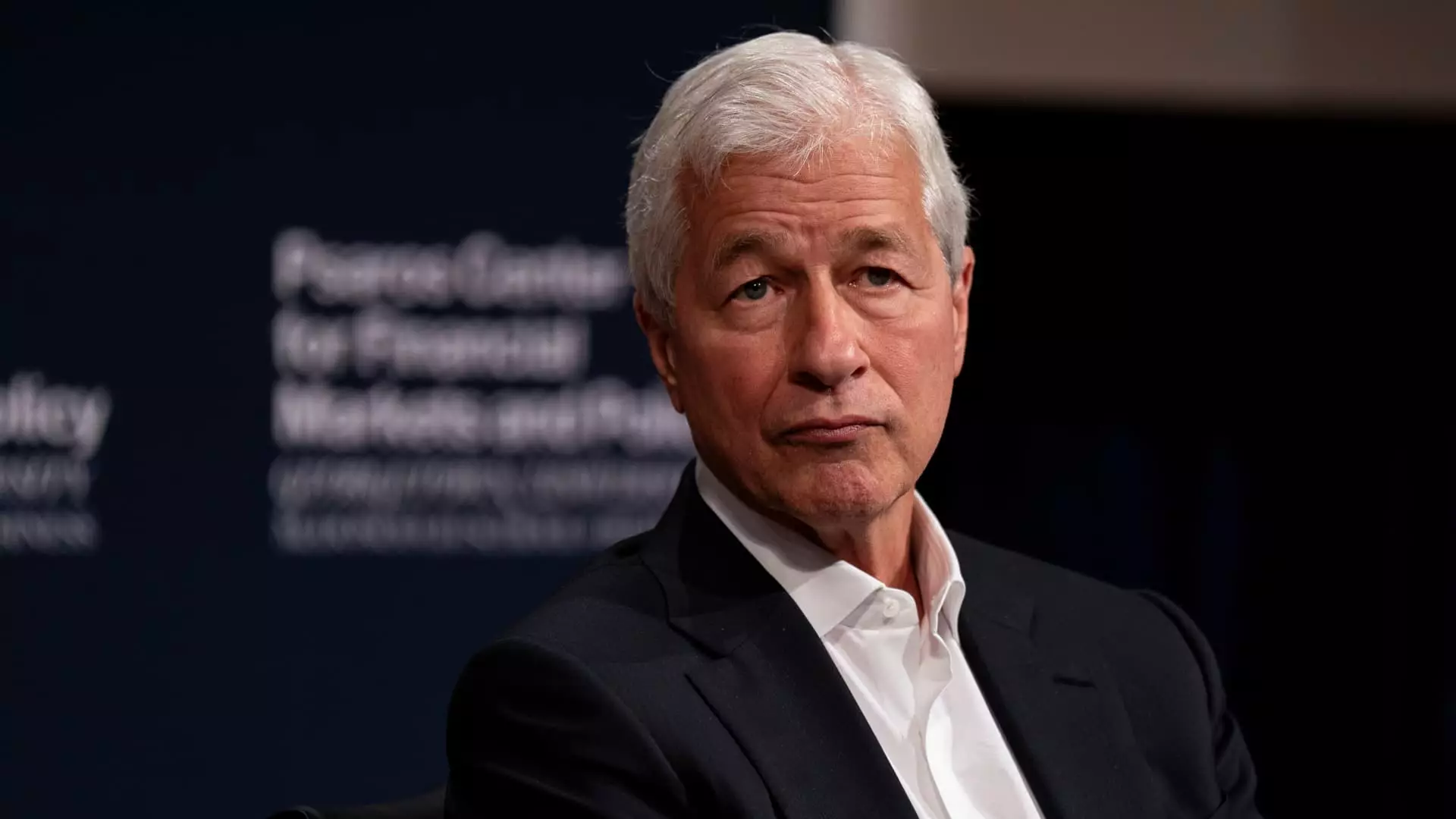In the landscape of global economics, tariffs have long served as a contentious tool. As recent statements from JPMorgan Chase CEO Jamie Dimon suggest, there is a dual nature to these economic instruments—one that can encourage domestic growth while also presenting potential pitfalls that threaten international cooperation. Tariffs, when not carefully calibrated, can stoke inflation and provoke retaliatory measures from trading partners, ultimately spiraling into a full-blown trade war. Yet, as Dimon argues, they can also protect national interests and facilitate improved negotiations with foreign nations.
President Trump’s approach to tariffs has not been subtle; rather, it has been a direct confrontation with traditional trading practices. Targeting countries such as Mexico, Canada, China, and various European Union nations reflects a broader attempt to renegotiate established trade agreements that many argue have become unfavorable for the United States. The reasoning for such tariffs can often seem sound: safeguarding American jobs, balancing trade deficits, and enhancing national security. However, as the possible implementation of hefty tariffs looms, the consequences on inflation and economic growth continue to spiral into complex debates.
Dimon’s comments shed light on a pivotal point: the application of tariffs needs to consider their nuanced impacts. His suggestion that some level of inflation may be an acceptable trade-off for national security highlights the difficult balance policymakers must strike. A prospective 10% tariff on China and a staggering 25% on Canada and Mexico raises pressing questions about the broader ramifications for American consumers and businesses. While the initial goal may be to bring trading partners to the negotiation table for rebalancing trade agreements, the economic landscape could shift dramatically in unforeseen ways.
One must not overlook the potential for rising costs for goods due to these tariffs—costs that consumers inevitably bear. A nation’s economic well-being is intertwined with its relationships abroad, and imposing barriers to trade erodes these connections. The assertion that tariffs are simply “economic tools” or “weapons” might reduce them to mere instruments, but the implications extend beyond economics into areas of international diplomacy and trust.
Dimon’s viewpoint found some resonance among fellow Wall Street executives, including Goldman Sachs CEO David Solomon, who signaled a readiness among business leaders to adapt to shifting trade policies. Solomon’s optimism about the potential for a rebalancing suggests an industry-wide acceptance of evolving trade dynamics. Yet, the emphasis on the manner of implementation cannot be ignored. Rapid, thoughtless imposition of tariffs runs the risk of alienating allies and igniting defensive reactions that can further complicate already tense international economic relations.
Furthermore, a critical analysis of the motivations behind such tariffs can unveil deeper political currents at play. The mere threat of tariffs may also serve as negotiation tactics rather than an intent to impose them fully. It signals a willingness to make drastic moves to extract concessions, highlighting the strategic nature of modern-day commerce and the importance of thoughtful and careful administration of economic policies.
Despite potential benefits, the reality of these proposed tariffs is complicated by adjectives such as “constructive” or “beneficial for growth.” The U.S. dollar has already begun a downward slide against global currencies in light of tariff speculation. That diffusion into the currency market hints at investor uncertainty—a sentiment that Dimon identified as critical, stressing that the most pivotal factor in economic health is growth itself.
As American consumers brace for potential increases in prices, the import of tariffs as merely a response to perceived unfairness in trade dynamics requires deeper scrutiny. Economic policies cannot be approached with a one-dimensional lens; they require a holistic understanding of their geopolitical context, the fluidity of international relations, and domestic economic stability.
The dialogue surrounding tariffs needs to pivot from a binary framework of support and opposition to a more nuanced, multifaceted discussion that reflects interconnected global realities. In this complex dance of negotiation, the call for careful implementation and strategic thinking could foster a new era of trade agreements—one that acknowledges the intricate balancing act of benefiting one’s nation while maintaining robust international partnerships.

